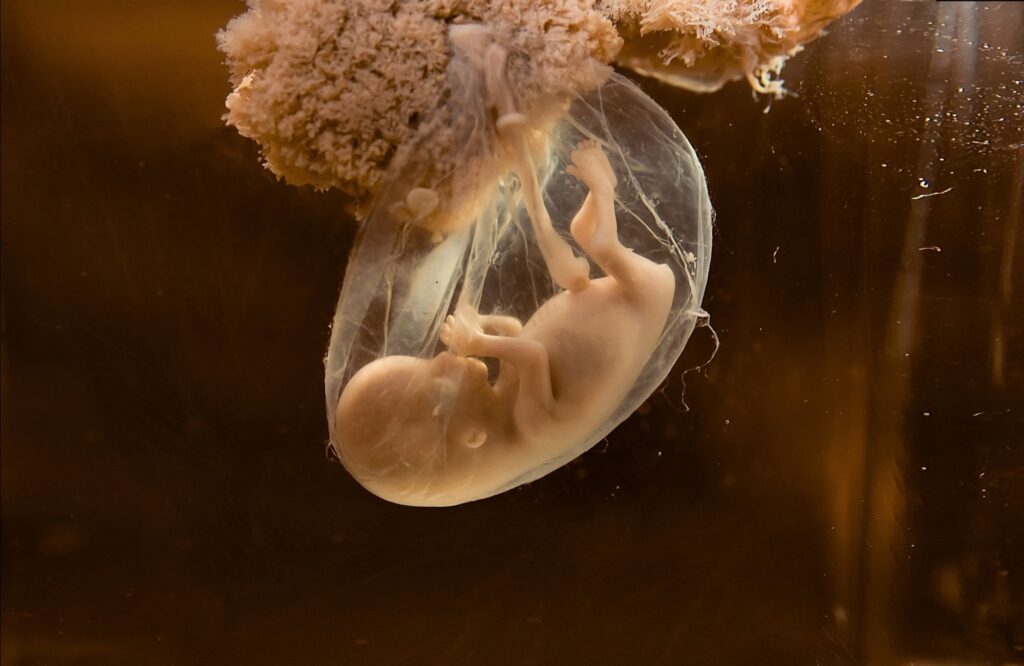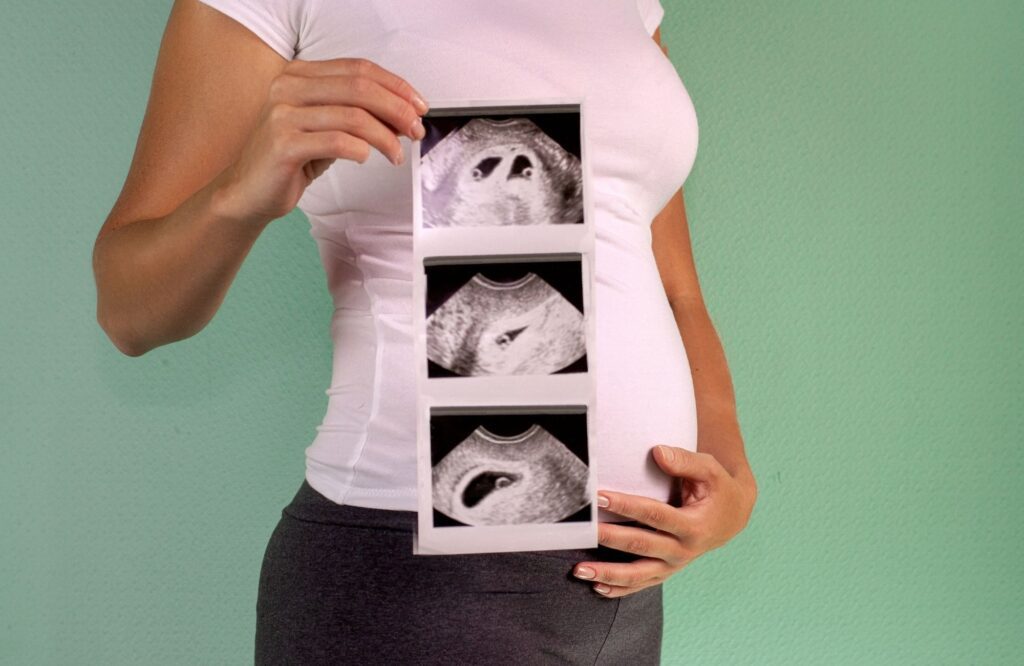What To Avoid During Your First Trimester – The Ultimate Do’s And Don’ts

Pregnancy is an exciting period in a woman’s life. As an expectant mother, while also being an expecting parent, it is imperative to have a healthy atmosphere as you are preparing for motherhood and the arrival of your little bundle of joy.
During the first three to four months of pregnancy, a lot happens. Your baby grows faster than at any other period throughout pregnancy. You may generally hear your baby’s heartbeats by six weeks, and by the end of week 12, your baby’s bones, muscles, and all of their organs would have formed.
At this time, your baby resembles a tiny human being and is referred to as a fetus. While 40 weeks is the typical gestation period, a full-term baby can be delivered as early as 37 weeks and as late as 42 weeks.
It is normal for a newly pregnant woman to want to know first trimester precautions she should take or things to avoid in early pregnancy like foods to avoid in the first month of pregnancy, things to avoid during pregnancy that can cause miscarriage and general do’s and don’ts during the first trimester.

The First Trimester
The first trimester (the first three months of pregnancy) is when a fertilized egg divides rapidly into layers of cells and implants in the uterine wall. These layers of cells develop into an embryo, and a heartbeat may be seen at six weeks using a fetoscope or an ultrasound device.
The baby’s bones, muscles, and organs develop by the end of the first trimester (week 12), and it is now termed a fetus. During the first trimester, the baby’s development is visible. By the conclusion of the first trimester, the fetus can weigh up to 1 ounce and be 3 to 4 inches long on average.
Miscarriage or spontaneous abortion can also occur during the first trimester. As a matter of fact, the American College of Obstetricians and Gynecologists (ACOG) states that it is the most common form of pregnancy loss. Women are advised to avoid a variety of activities and meals during the first trimester due to the rapidly developing fetus and the risk of miscarriage.
Below you can find details about all the changes that may occur to your body and the first trimester tips you must follow for a healthy pregnancy:
The Fetus

The egg and sperm unite during conception to create a zygote, which implants in the uterine wall. As the zygote’s cells split and expand, it develops into an embryo. By the completion of the first 12 weeks, the following will have occurred:
- All of the major organs and structures of the baby have begun to develop.
- The heartbeat is regular.
- Fingers and toes have developed.
- The fetus is around 3 inches long and weighs about 1 ounce.
- The fetus can form a fist because its nerves and muscles are working together.
- Eyelids would also have developed to safeguard the baby’s eyes and remain closed until approximately week 28.
The Pregnant Mother

During the first trimester of pregnancy, a lot of changes occur. These changes may sometimes affect your body in different ways, and to cope with these changes, you must know your healing steps beforehand.
Here are some changes your body may experience during the first trimester:
- Tiredness, pain, swollen breasts, mood swings.
- Desires for a specific meal
- Headaches
- Indigestion
- An urge to urinate more often
- Changes in weight
- Constipation
- Morning sickness is characterized by nausea, occasionally accompanied by vomiting.
Morning sickness can persist all the way through the first trimester and sometimes even beyond. It does not occur just in the morning, despite its name.
Tips for a Healthy First Trimester

The first trimester can affect your entire pregnancy journey if you do not take critical measures to smoothen it.
Here are some simple-to-follow tips you must keep in mind to avoid any first trimester complications and enjoy a healthy pregnancy:
- Begin taking prenatal vitamins—Before you get pregnant, start taking a prenatal vitamin. It can help protect your child from any birth problems.
- Make an appointment for a Preconception Checkup—Consult your doctor before attempting to conceive. Inquire about what you can do to prepare for a healthy pregnancy and baby.
- Exercise regularly—Regular moderate-intensity exercise may enhance your chances of becoming pregnant. Try going for a stroll, riding your bike, or gardening.
- You are more likely to develop significant flu complications if you are pregnant. So, protect yourself and your kid by getting a flu shot.
- Make an appointment with your healthcare professional if you know you’re pregnant or suspect you might be. Early prenatal care preserves the health of your baby.
- Find a doctor with whom you feel at ease to feel more secure and relaxed during your pregnancy. Learn how to choose the best OB for you.
- You should see your doctor at least once a month between weeks 4 and 28 of your pregnancy. The meet-up can be an excellent opportunity to ask important questions, learn more about your baby and pregnancy, and monitor your baby’s development.
- Soft cheese should be avoided—You should avoid cheese prepared from raw or unpasteurized milk, as it may include organisms that are harmful to your infant. This comprises the majority of soft cheeses.
- If your morning sickness is severe, you may require medical attention. See your doctor if you vomit almost every time you eat or can’t keep the water down.
First Trimester Do’s:

It takes a lot of self-care to live a healthy pregnancy. You can simply follow these do’s for the first trimester and see how easily everything will flow.
- During the first trimester, an early visit with the obstetrician and regular follow-ups are necessary for weekly progress on the growth of the fetus.
- Choose your obstetrician and facility wisely. Avoid frequent modifications since they result in opposing viewpoints during consultations.
- Consume more organic and handmade foods that are high in minerals, vital vitamins, and proteins. Consume a range of nutritious foods high in iron, calcium, and folate.
- Choose antioxidant-rich foods such as dark green spinach, oranges, carrots, red apples, yellow bananas, and blueberries throughout your pregnancy.
- Unless otherwise directed by the treating expert, continue with your normal daily activities.
- Walking is essential and is regarded as the best exercise for pregnant women. It keeps your muscles toned and, most importantly, it keeps you active. Walking also aids in blood sugar regulation and lowering the risk of gestational diabetes.
- Make sure you get enough rest. Taking breaks allows your body to rest, as it is in constant movement while forming your baby.
- When driving or traveling by car, make sure you always wear a seatbelt. This is something you SHOULD do even when you are not pregnant.
- Increase your consumption of folic acid supplements as it is a type of vitamin B required for blood cell development. It is incredibly beneficial to the baby’s nervous system development. The doctor’s recommendation will determine the dosage.
Folic acid is provided before and during pregnancy to avoid neural abnormalities in the developing embryo.
First Trimester Don’ts:
While focusing on the things you must do for a healthy first trimester, you should also avoid certain things that can assert complications with time. Here are some don’ts to follow in your first trimester:
- Do not self-medicate as it may endanger your health as well as your child’s health.
- Consume no junk foods because they raise the risk of gestational diabetes due to their high sugar and calorie content.
- It would be best if you avoid tobacco, alcohol, and caffeine. While you’re pregnant, whatever you put into your body will be passed on to your unborn child. Smoking, drinking alcohol, or doing drugs may be harmful to your baby’s growth, development, and health; therefore, you must change your habits.
- To avoid gastrointestinal problems, avoid eating street meals.
- There is no need to add any extra diet during the first trimester.
- Preservatives and pesticides should be avoided in foods.
- Raw papaya and raw pineapple should not be consumed.
- You should avoid dehydration by drinking enough water and ensuring being stress-free as it affects your baby’s growth.
- Stop gaining weight until you’re 16 weeks pregnant.
- Consume zero foods that cause constipation.
- Don’t use the sauna or steam room, and don’t overheat in the bath.
You can maintain your health while being pregnant. To know more, tap on the given link below—Brigham Health Hub.
Body Changes & Symptoms During the First Trimester

Every woman’s pregnancy is unique. During the first three months, some women glow with excellent health, while others face miserable issues. Here are some of the changes you may observe, what they represent, and which symptoms should prompt you to contact your doctor.
Bleeding
Approximately 25% of pregnant women experience minor bleeding during the first trimester. Light spotting early in pregnancy may indicate that the fertilized egg has been implanted in your uterus. Call a doctor if you have significant bleeding, cramps, or intense pain in your stomach. These symptoms could indicate a miscarriage or an ectopic pregnancy (a pregnancy in which the embryo implants outside of the uterus).
Breast sensitivity
One of the first indicators of pregnancy is sore breasts. They are caused by hormonal changes that prepare your milk ducts to feed your baby. Throughout the first trimester, your breasts will most likely be painful. Wearing a support bra and going up a bra size (or more) can make you feel more comfortable. You won’t be able to return to your regular bra size until your baby has completed nursing.
Constipation
High amounts of the hormone progesterone slow down the muscular contractions that usually transport food through your system during pregnancy. Add in the extra iron from your prenatal vitamin, and you’ll have painful constipation and gas that will keep you feeling bloated throughout your pregnancy. Consume more fiber and drink more fluids to keep things flowing smoothly. Physical activity can also be beneficial.
Discharge
Early in your pregnancy, you may notice a thin, milky white discharge (called leukorrhea). Wear a panty liner if it helps you feel more comfortable, but don’t use a tampon because it may introduce germs into your vagina. Call a doctor if the discharge smells strong, is green or yellow, or has a large amount of clear discharge.
Fatigue
Your body is putting in a lot of effort to support a growing baby. This means you’ll tire more quickly than usual. Take naps or rest as needed during the day. Check to see if you’re getting enough iron. Too little can cause anemia, which can make you even more fatigued.
Food preferences and dislikes

Although you might not want a bowl of mint chip ice cream with dill pickles, as the old adage goes, your tastes might alter while pregnant. Food cravings affect more than 60% of pregnant women. More than half of the population dislikes certain foods. Cravings are acceptable on occasion, as long as you eat nutritious, low-calorie foods the majority of the time.
Pica, a hunger for nonfoods such as clay, dirt, and laundry starch, is an exception that can be harmful to both you and your kid. If you have this type of cravings, notify your doctor straight away.
Heartburn
During pregnancy, your body creates an increased amount of progesterone. It relaxes your muscles, such as the muscular ring in your lower esophagus and the tube that connects your mouth and stomach.
These muscles are generally responsible for keeping food and acids down in your stomach. Acid reflux, also known as heartburn, can occur when they relax. To avoid the burn, follow these steps:
- Consume several modest meals throughout the day.
- Do not lie down immediately after eating.
- Avoid foods that are fatty, spicy, or acidic (like citrus fruits).
- Try sleeping with your pillows raised.
Moods fluctuate
Increased exhaustion and shifting hormones might send you on an emotional roller coaster that can take you from happy to sad or hopeful to afraid in a matter of seconds. It’s okay to cry, but try to find a sympathetic ear if you’re feeling overwhelmed. You can consult your partner, a friend, a family member, or a professional.
Morning sickness
One of the most prevalent pregnancy symptoms is nausea. It affects up to 85% of pregnant women. It is caused by hormonal changes in your body and might linger throughout the first trimester. Some pregnant women only have moderate nausea, while others can’t begin their day without vomiting. Morning sickness is usually the worst (hence the name, “morning sickness”).
To alleviate nausea, consume small, bland, or high-protein snacks (crackers, pork, or cheese) and water, clear fruit juice (apple juice), or ginger ale. You might even want to do this before you get out of bed. Avoid eating anything that makes you ill to your stomach.
Learn more about body changes that occur during the first trimester at Family Doctor.
Bottom Line
Pregnancy is a state of well-being, not a disease, and it is a life-changing experience for expectant parents. The arrival of this tiny bundle of pleasure is well worth the effort. Keep in mind that every pregnancy is different. Even the same person’s many pregnancies can result in diverse modifications. Your symptoms may be minimal or severe, depending on the change.
Do not be concerned if the adjustments do not occur at the expected time. If you have any concerns, speak with your doctor. We hope you enjoy your pregnancy with minimal complications and give birth to a lovely baby. For more tips and advice on pregnancy, keep reading our blog. You can check out more of our posts here:
How To Have A Healthy And Belly Only Pregnancy
All You Need To Know About Pregnancy Stretch Marks

